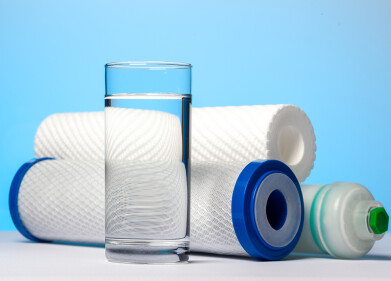Wastewater treatment
Mussel-inspired membrane can boost sustainability and add value to industrial wastewater treatment
Aug 08 2023
A novel membrane inspired by mussels has the potential to revolutionize industrial wastewater treatment, enhancing sustainability and offering additional value to various industries. This newly developed nano porous membrane demonstrates exceptional efficiency in separating wastewater components, enabling their reuse and providing an opportunity for industries to improve their environmental impact while extracting valuable by-products and chemicals from the wastewater.
Known as a Thin-Film Composite Nano porous Membrane (TFC NPM), this cutting-edge technology exhibits unprecedented capabilities in efficiently separating salts and other chemical constituents from water. Its unique properties, inspired by mussels' characteristics, open up possibilities for more sustainable water management in diverse sectors, including pharmaceuticals, oil and gas, textiles, and food processing. The research paper, published in Nature Water, showcases the membrane's performance and highlights its potential applications for better water treatment and conservation.
The TFC NPM could potentially replace current membranes used in electrodialysis, a process that treats water by transporting ions through membranes from one solution to another using electrical current. Compared to existing expensive membranes with separation efficiencies of 90-95%, the new TFC NPM boasts efficiencies of over 99% while consuming less energy at a lower cost.
Dr. Ming Xie, a Chemical Engineering lecturer at the University of Bath and one of the paper's authors, believes that this membrane could bring a paradigm shift in wastewater treatment practices. Instead of considering wastewater as a necessary cost of business, industries can utilize technologies like this membrane to reduce carbon emissions, decrease energy requirements, and efficiently separate valuable components like chemicals, salts, energy, biomass, and nutrients for reuse as high-value by-products.
Inspired by mussels, the membrane's coating comprises the polymers polyethyleneimine (PEI) and polydopamine (PDA). This coating mimics mussels' ability to stick to rocks or wood in wet conditions, making the membrane highly selective, allowing water to pass through while blocking other compounds and organic materials. The multi-stage filtration process results in improved water filtration and provides a highly efficient, low-energy method to separate individual chemicals.
In tests, the researchers used four antibiotics to demonstrate the membrane's electro-driven filtration performance, achieving unprecedentedly high recovery efficiency in removing the antibiotics from saltwater solutions. The membrane's potential to carry out highly effective electro dialytic fractionation of various organic/NaCl mixed solutions surpasses standard existing processes.
Co-author Dr. Dong Han Seo from the Department of Energy Engineering at the Korea Institute of Energy Technology emphasizes the membrane's ability to address the pharmaceutical industry's challenge of bio-based wastewater treatment, efficiently recovering high-value chemicals while obtaining reusable water with low energy consumption.
Overall, this groundbreaking research is published in Nature Water, presenting a significant step towards more sustainable and efficient wastewater treatment practices. The researchers are actively exploring opportunities to commercialize the membrane and welcome collaboration from relevant parties. The project received support from various sources, including a Royal Society International Exchange grant, a Royal Academy of Engineering Industrial Fellowship, and the Erasmus Staff Mobility Fund. Additionally, the University of Bath has established the Engineering Porous Materials at Multiple Scales (EPoMM) network to foster cross-disciplinary innovation in the field of porous materials.
Events
Aug 24 2025 Stockholm, Sweden and online
Aug 27 2025 Busan, South Korea
Sep 02 2025 Mexico City, Mexico
Sep 02 2025 Mexico City, Mexico
Sep 09 2025 Moscow, Russia







.jpg)






